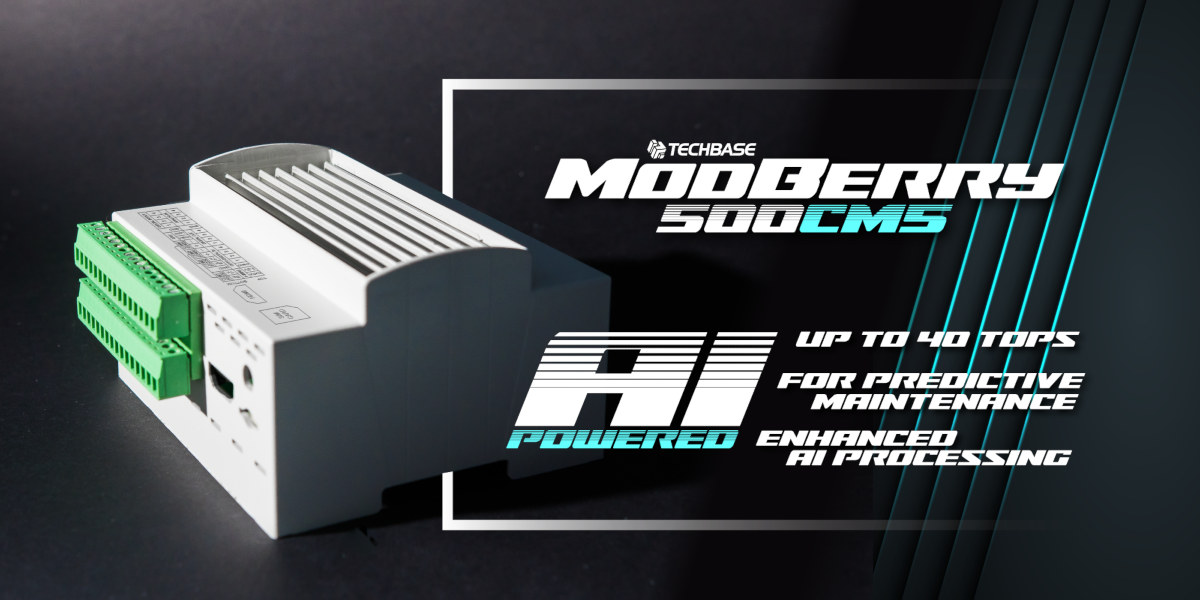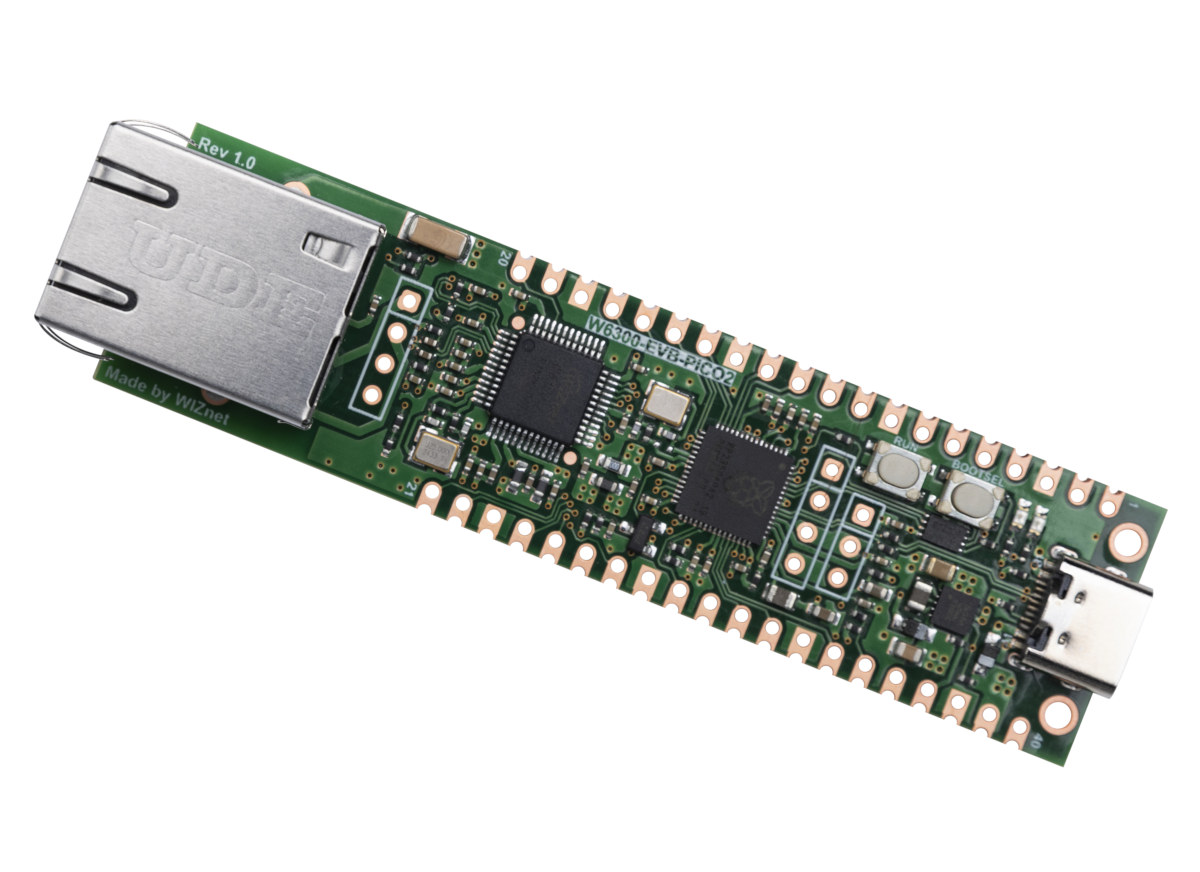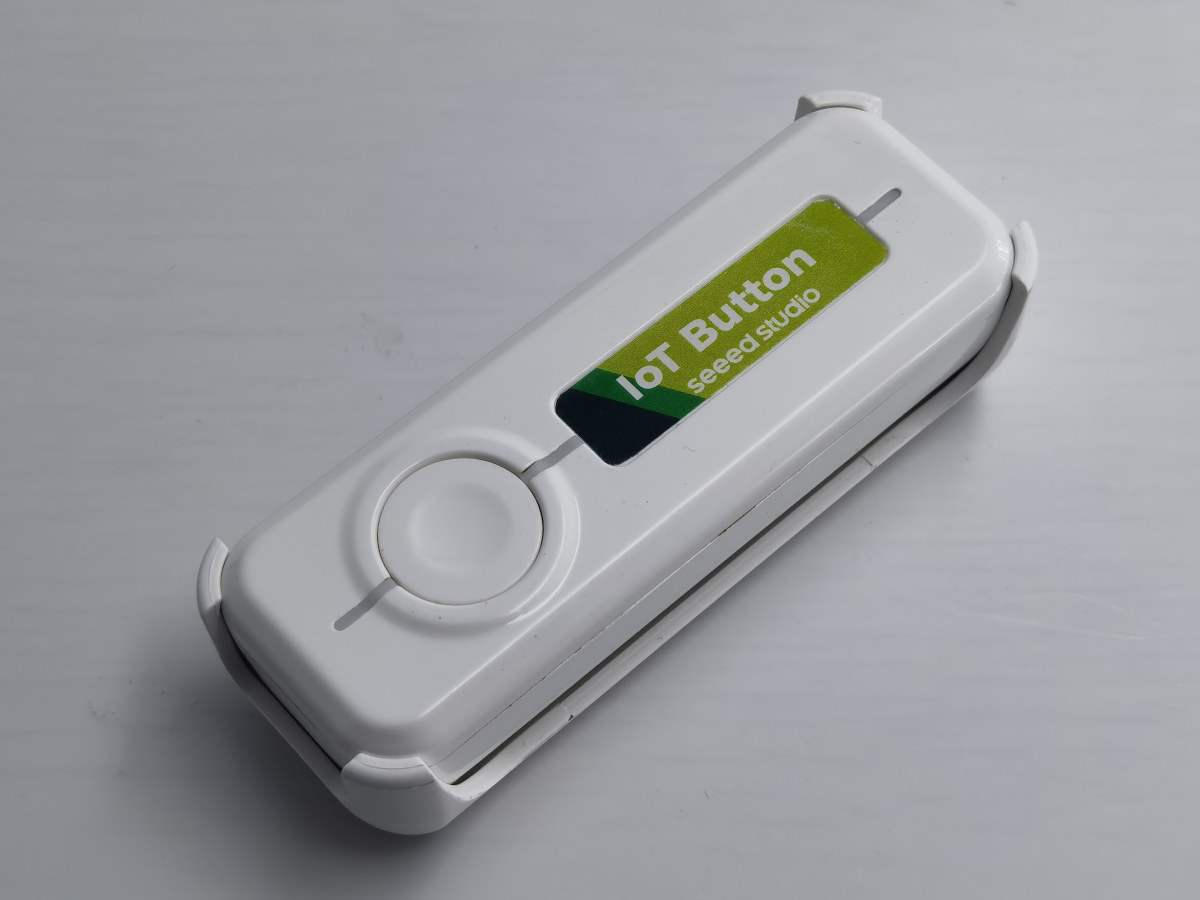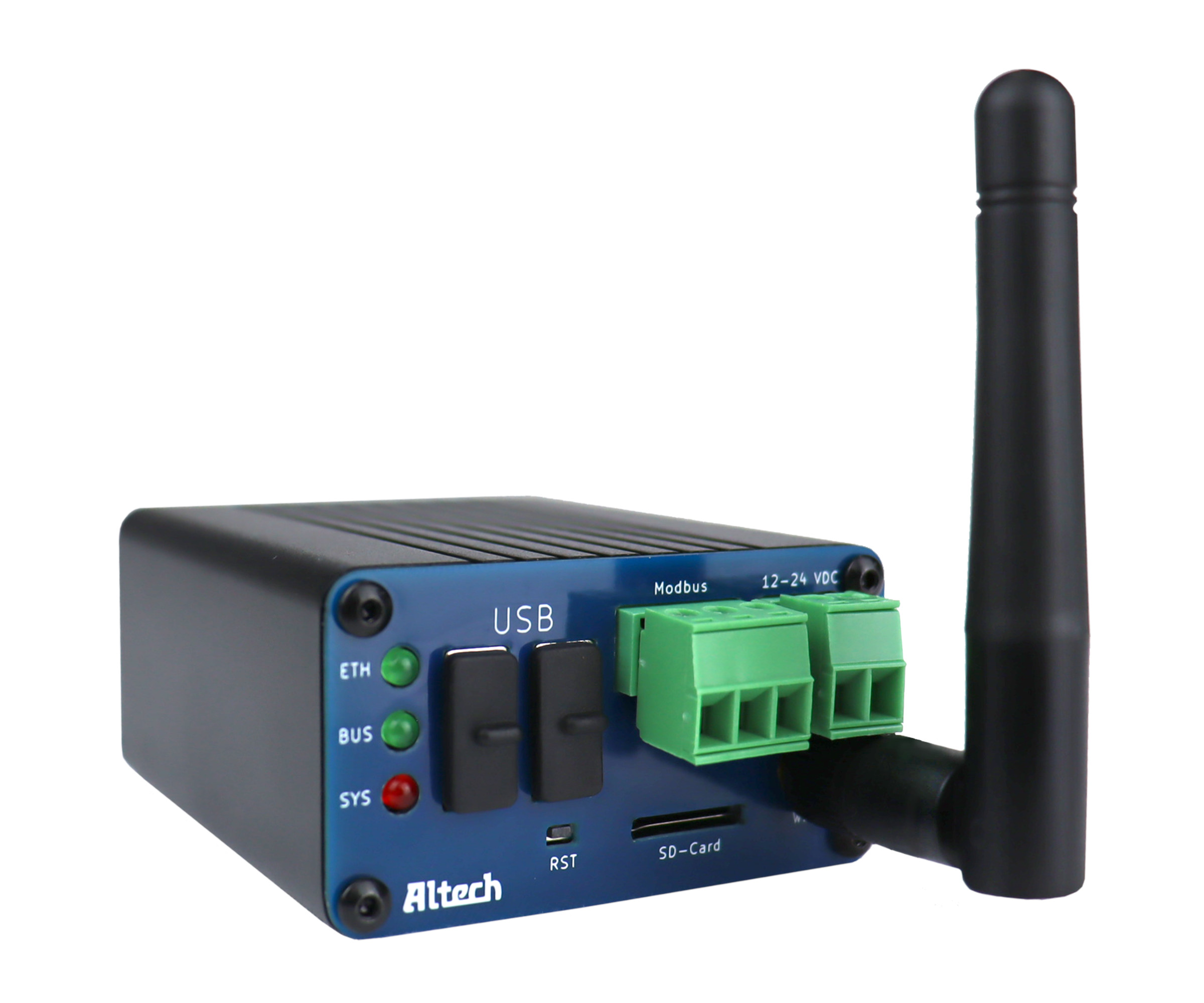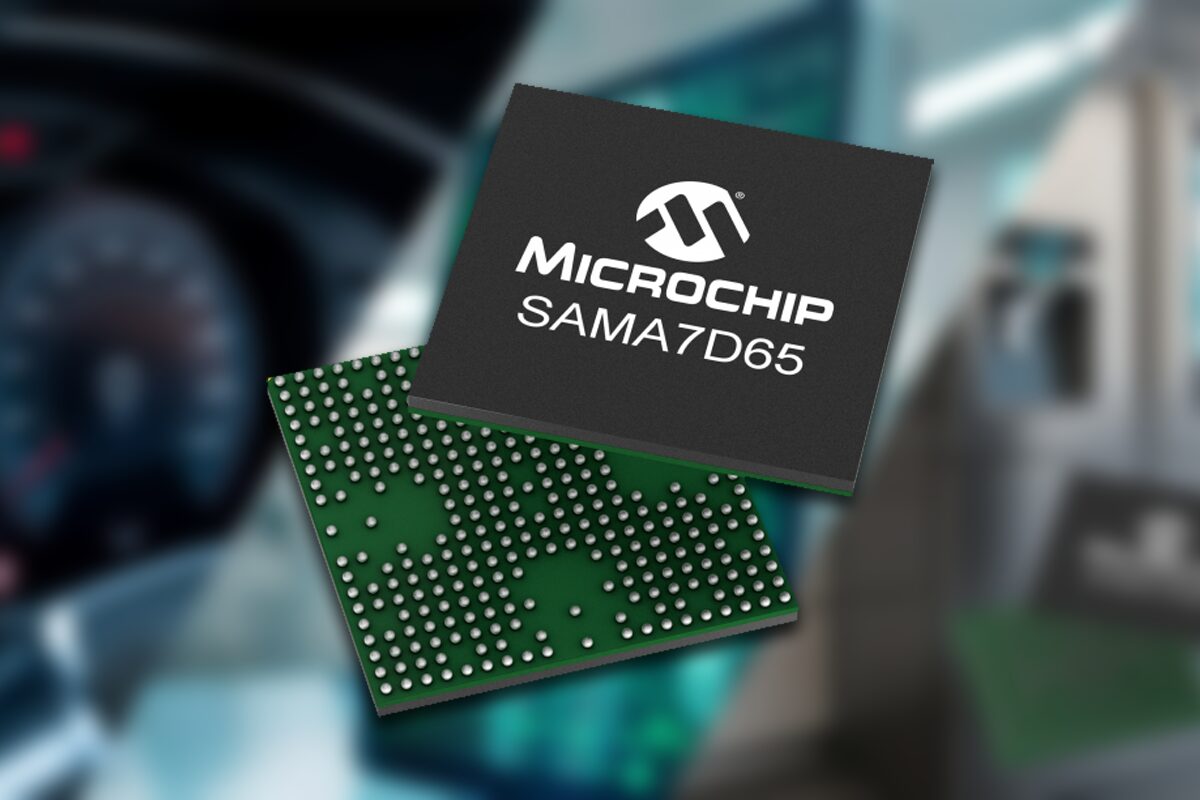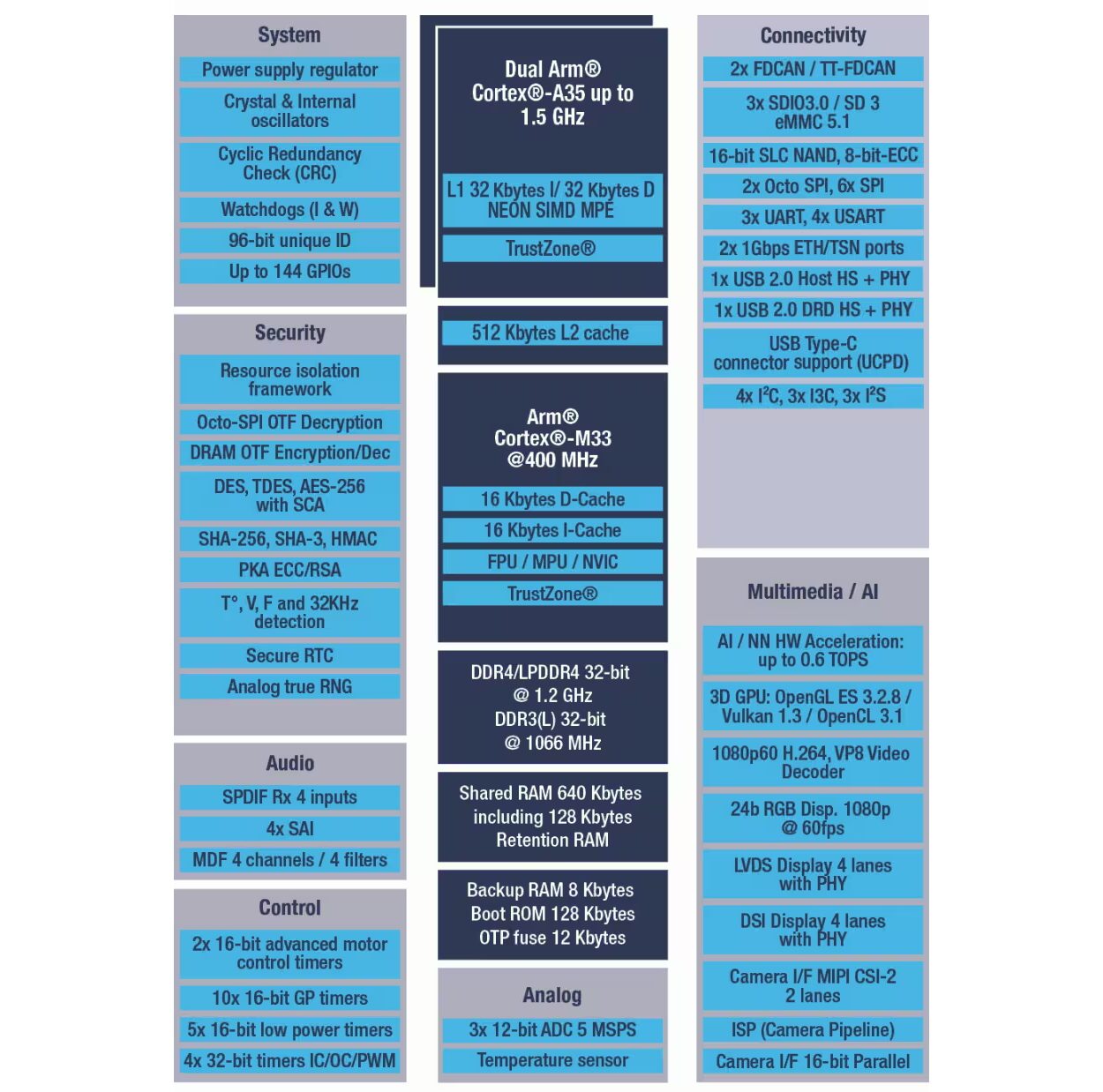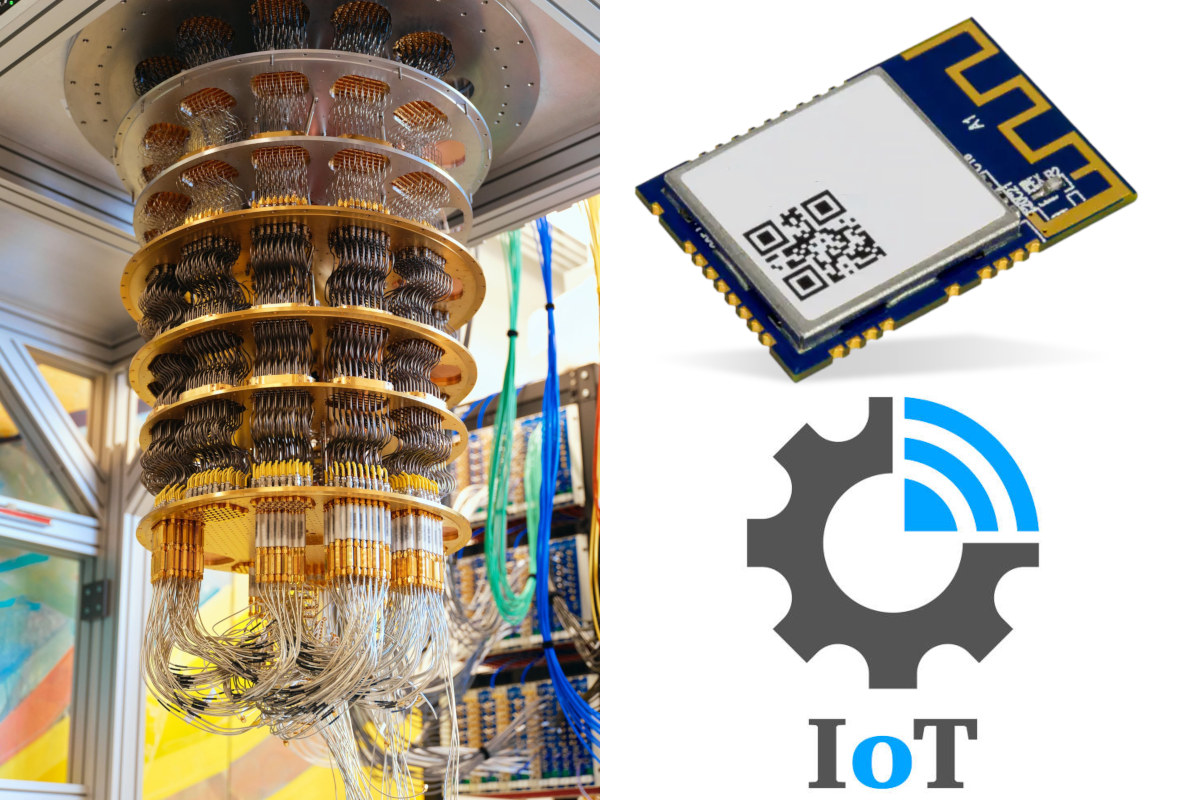The industrial IoT (IIoT) landscape is undergoing a transformative shift, driven by advancements in artificial intelligence (AI). Among the frontrunners of this revolution is the ModBerry 500 CM5, a cutting-edge IoT platform enhanced by optional AI modules like the Hailo-8L and Geniatech AIM-M2. With the integration of these modules, the ModBerry 500 CM5 becomes a powerhouse for industrial automation, offering unparalleled performance and scalability. Let’s dive into the exciting capabilities of this innovative combination and explore the current and future applications of AI in IIoT. ModBerry 500 CM5: The Core of Smart Industrial Automation At the heart of the ModBerry 500 CM5 is the powerful Raspberry Pi Compute Module 5, featuring a quad-core Cortex-A76 processor and support for up to 16GB of RAM. When paired with AI acceleration modules like the Hailo-8L and Geniatech AIM-M2, the ModBerry 500 CM5 evolves from an IoT hub into a sophisticated AI-enabled system capable […]
W6300-EVB-Pico2 board combines RP2350 MCU with WIZnet W6300 QSPI Ethernet controller for 80+ Mbps data rate
WIZnet W6300-EVB-Pico2 is a development board that combines a Raspberry Pi RP2350 MCU with the company’s new W6300 QSPI Ethernet controller capable of 80+ Mbps data rates. WIZNet has made several 10/100Mbps Ethernet controllers over the years that connect to microcontrollers via SPI, but the speed is often limited to 15 to 70 Mbps due to a low SPI clock frequency and small buffers. The WIZNet W6300 Ethernet controller can deliver higher speed thanks to a 150MHz system clock, a QSPI interface with four data lines, 64KB SRAM, and 4KB TX/RX buffer for each of the 8 sockets. W6300 QSPI Ethernet controller W6300 features and specifications: Host Interface – High-speed QSPI (MODE 0/3), system bus with 2 address signals & 8-bit data Internal 32KB SRAM for Tx/ Rx buffers (64KB in total) 8x independent sockets with 64KB Memory 10BaseT / 10BaseTe / 100BaseTX Ethernet PHY Integrated Auto negotiation (Full and […]
Battery-powered Seeed Studio IoT Button features ESP32-C6 SoC, supports ESPHome or Zigbee firmware
Seeed Studio IoT Button is an inexpensive ESP32-C6 button powered by a rechargeable 18650 battery and designed to easily and quickly control Smart Home devices over WiFi 6 or Zigbee wireless protocol. It will be especially handy to Home Assistant users since the device is pre-flashed with ESPHome firmware for easy integration (over WiFi), and the company also provides a Zigbee firmware for Zigbee Home Assistant (ZHA) integration. The hardware is pretty basic with a button, three LEDs, and a USB-C port for charging the replaceable 18650 battery. Seeed Studio IoT Button specifications: SoC – ESP32-C6FH4 CPU Single-core 32-bit RISC-V clocked up to 160 MHz Low-power RISC-V core @ up to 20 MHz Memory – 512KB SRAM, 16KB low-power SRAM Storage – 320KB ROM, 4MB flash Wireless – 2.4 GHz WiFi 6, Bluetooth 5.0 LE/Mesh (somehow not used here), 802.15.4 radio for Zigbee 3.0 and Thread. Matter compatible. USB – […]
Altech DO-1 Modbus monitor connects to up to 128 Modbus RTU/TCP devices
US-based Altech Corp has recently announced the DO-1 universal monitor for Modbus devices to enable companies to easily monitor, collect, and analyze their equipment and process data such as temperature, humidity, pressure, vibration, and energy usage without any subscription fees or licenses. The DO-1 is a vendor-agnostic solution that connects to up to 128 RTU-TCP Modbus devices, features 5GB of internal data storage expandable up to 128GB with a microSD card, dual Ethernet, and optional WiFi and Bluetooth connectivity. The device also implements dual power input with a 12V/24V DC input via a terminal block, and 5V via micro USB as power backup. Altech DO-1 specifications: Storage 5GB for data storage (I assume from 8GB eMMC flash) MicroSD card slot up to 128GB Networking 10/100Mbps Fast Ethernet RJ45 port (LAN1) Gigabit Ethernet RJ45 port (LAN2) LAN1 and LAN2 can be configured in switch or 2-port mode Optional WiFi 802.11 b/g/n […]
Microchip SAMA7D65 Cortex-A7 MPU comes in SoC and SiP packages with up to 2Gbit integrated DDR3L memory
Microchip has recently released the SAMA7D65 MPU, a high-performance Arm Cortex-A7 embedded processor designed for HMI and connectivity applications across industrial, home, medical, and appliance markets. The MPU is available in both System-in-Package (SiP) and System-on-Chip (SoC) variants and features various display interfaces, including MIPI DSI, LVDS, and 8-bit Serial RGB interfaces, along with a 2D GPU for graphical acceleration. Memory and storage options include support for 16-bit DDR2/DDR3/DDR3L and LPDDR2/3 memory, optional 1 Gbit or 2 Gbit DDR3 RAM, NAND Flash, eMMC Flash, and SD card. It features dual Gigabit Ethernet with TSN support, an I3C controller, five CAN-FD interfaces, and three high-speed USB ports. Additionally, it comes with various security features, including physically unclonable function (PUF), secure boot, key storage, and cryptographic accelerators for AES, SHA, RSA, and ECC. Microchip SAMA7D65 SoC/SiP specifications: CPU – Arm Cortex-A7 core up to 1 GHz Arm TrustZone, NEON, FPU 32KB L1 I-cache […]
STMicro STM32MP23 Cortex-A35/M33 MPU features a 600 GOPS NPU for industrial IoT and ML applications
STMicroelectronics STM32MP23 is a dual-core Cortex-A35 general-purpose microprocessor (MPU) with a Cortex-M33 real-time core, and 600 GOPS of performance operating at up to 125°C and designed for industrial and Internet-of-Things (IoT) edge computing, advanced HMI, and machine-learning (ML) applications. It follows the STM32MP25 series unveiled in 2023 and launched the following year as the first member of the STM32MP2 family. The STM32MP23 is a cost-down version of the STM32MP25 with similar specifications (and pin-to-pin compatible packages), but the new family has a weaker 0.6 TOPS NPU, and tops at two Ethernet ports for the high-end parts instead of three. Ditto for CAN Bus interfaces (2x vs 3x). Other changes include a 16-bit memory interface and the lack of PCIe and USB 3.0 interfaces. STM32MP23 specifications: CPU – Single or dual Arm Cortex-A35 cores running at up to 1.5 GHz or 1.2 GHz with 512KB L2 cache Real-time MCU – Arm […]
Batteryless 7.5-inch NFC-powered e-paper display V2 gets new NFC chip and “fast flashing method”
Back in 2020, we wrote about Waveshare’s Batteryless NFC e-paper display, which can work without a battery and draws power and data from an NFC-enabled smartphone or the company’s ST25R3911B NFC board. Waveshare has now released a V2 version of this display with a new and improved NFC chip, a “fast flashing method”, and enhanced contrast. The new batteryless, 7.5-inch NFC-powered e-paper display features an 800×480 resolution and updates via an NFC-enabled smartphone or reader. It offers a 170° viewing angle and comes in a durable ABS plastic shell. The ST25R3911B NFC board allows updates via USB, SD card, or serial port, with an optional password lock. However, precise NFC positioning is required for updates. These features make it ideal for shelf labels, equipment tags, and other applications. Waveshare 7.5-inch NFC e-paper display V2 specifications: 7.5-inch e-paper display 800×480 resolution Display color black and white 170° viewing angle Refresh Time […]
Preparing IoT Security for the Quantum Computing Era
CNXSoft: This is a guest post by Avishay Shraga, Sr. Director (CTO), Head of Security Technologies at Sony Semiconductor Israel, discussing IoT security as quantum computing draws near. The key to modern asymmetric cryptography is to create an equation that is easy to solve in one direction but difficult to reverse by an adversary in the other direction. Traditionally, this was done through modular arithmetic, where a large prime modulus and a generator were used to generate a key, although there are multiple methods to do so. The strength of this one-way function is measured by the time and computing power needed to reverse it. ECC 256, considered by many to be one of the gold standards in modern cryptography, would take millions of years to crack using current computing and capabilities. Today’s encryption standards are more than adequate in securing real-time and historical data in IoT devices. However, as […]


